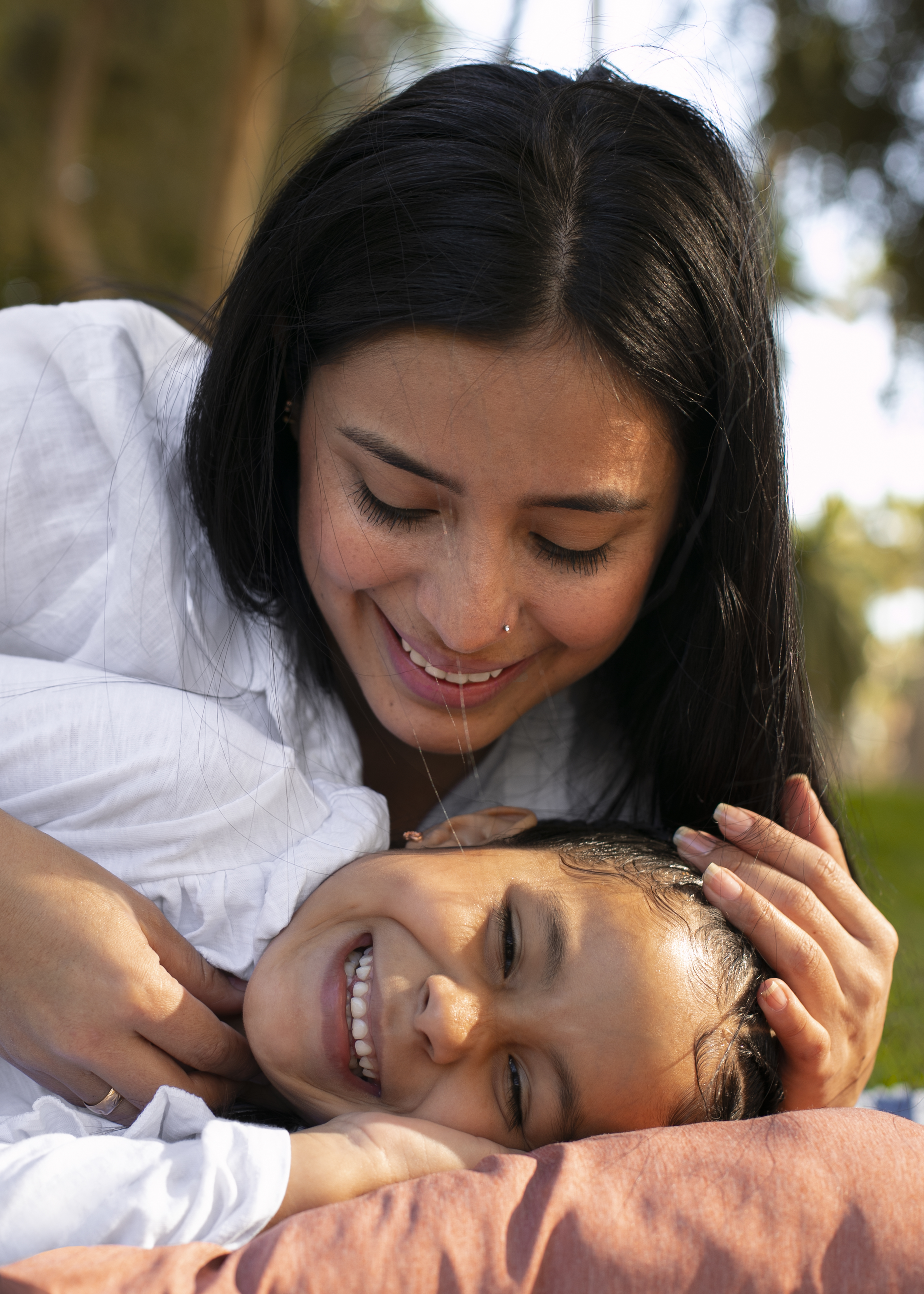Being our true selves
Parenting educator Mridula Saria reflects on the shift from performative to authentic parenting, revealing that children learn more from our emotional truth than our actions. She reminds us that presence, not perfection, is the greatest gift we can give o

Children learn by imitation. It’s a phrase we’ve heard countless times, passed around parenting books, early education classes, and casual conversations at playgrounds. And yet, for a long time, I misunderstood what it truly meant.
I thought modeling behavior meant performing it. So, I found myself saying “thank you” or “sorry” in front of my son, not always because I deeply meant it, but because I wanted to set an example. I’d catch myself glancing at him, checking whether he was watching, silently hoping that the message was sinking in.
But over time, and through my own journey as both a mother and a parent coach, I began to realize: modeling isn’t about performance. It’s about presence.
Children don’t just mimic our actions, they absorb our energy, our intention, our emotional truth. They learn not just from what we do, but from how we do it and why. If I want my child to be truly grateful, he needs to witness me in a moment of genuine gratitude. If I want him to feel the weight of an apology, he needs to see me own up to my mistakes, not for the sake of his learning, but because it’s true for me.
This reflection was recently reignited by a heartfelt message in a community I’m part of. A fellow parent, shared a moment that deeply resonated with me. His vulnerability sparked something in me that I couldn’t ignore, it made me think about authenticity, and where I stand with it.
Authenticity has always come naturally to me. In my personal and professional life, I’ve often chosen truth over ease, even when it came with consequences. I’ve never shied away from being honest, sometimes to a fault. I believed, and still believe, in living from a place of integrity.
But when I turn the mirror toward my parenting, I can’t say the same.
Somewhere between nap schedules and meal planning, between setting boundaries and teaching manners, I started losing touch with my authentic self as a parent. Not deliberately, but slowly, in the pursuit of being a "good mom," I began performing motherhood.
I smiled when I was tired. I said “it’s okay” when it wasn’t. I modeled patience while feeling chaos inside.
And I now realize that my son doesn’t need a perfect parent. He needs a real one.
He needs to see that mistakes happen and they can be repaired. That feelings are not threats, but signals. That strength and softness can coexist. That love doesn’t mean always getting it right, but always being willing to return, reconnect, and try again.
Children are emotionally intuitive. They might not understand our words fully, but they understand us. They pick up on our tone, our hesitation, our smiles that don’t reach our eyes. They feel the difference between a thank you said with joy and one said with the pressure of parenting "correctly."
That’s why authenticity is more powerful than any parenting technique. Because when we live it, we teach it, without saying a word.
Being an authentic parent doesn’t mean unloading our every emotion onto our children. It means showing up honestly and responsibly. It means allowing ourselves to be human in front of them, not just behind closed doors.
It’s okay to say, “I’m feeling overwhelmed right now, and I need a moment.” It’s okay to admit, “I made a mistake, and I’m sorry.” It’s okay to cry. To laugh too loudly. To change our minds. To be unsure.
Because when we do that, we give our children the permission to be human too.
The journey of this shift, from performative to authentic parenting has not only changed my relationship with my child, but with myself. It’s allowed me to slow down and listen more, not just to him, but to my own needs. To let go of the script and meet the moment.
And if you’re reading this wondering whether you’ve been performing more than living, don’t worry. Awareness is the first and most powerful step.
So maybe the next time you catch yourself doing something just for show, pause. Ask yourself: What am I truly feeling right now? What would it look like to be real in this moment?
Because our children don’t need perfection. They need presence. They need connection. They need us.
Messy. Growing. Real.
Just as we are. Cause being our true self, is the biggest legacy we can give our children.


